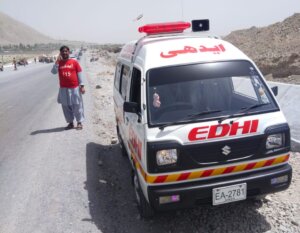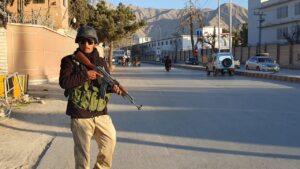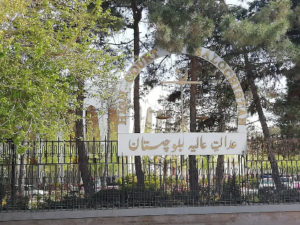Syed Muhammad Yaseen
Quetta: For thousands of students across Balochistan, August was supposed to be a month of preparation and hard work. With the Medical and Dental College Admission Test (MDCAT) and other university entry exams just around the corner, every hour counts. Instead, their studies have come to a grinding halt.
A sudden internet suspension — enforced for what authorities vaguely describe as “security reasons” in the lead-up to Pakistan’s Independence Day on 14th August — has left students cut off from online classes, study materials, and test preparation platforms.
“It’s like someone pulled the rug from under us,” says Sanaullah, a political science student from Turbat. “We had online mock tests scheduled. Now there’s nothing — just wasted days.”
MDCAT Dreams on Hold
The timing could not be worse. Thousands of aspiring doctors, engineers, and professionals in Balochistan rely on internet-based coaching services, recorded lectures, and past papers to prepare for high-stakes entrance exams.
Among them is Bibi Saqiba, a young student from Pishin. “I couldn’t prepare for my MDCAT because all my lectures and tests are online,” she says. “Worse, I haven’t even been able to register for the exam because the registration portal won’t open without internet.”
For many like Saqiba, the MDCAT is more than just a test — it’s a gateway to a medical career and a chance to lift their families out of financial hardship. Losing precious preparation time, or missing the registration entirely, could end that dream before it starts.
When Education Depends on a Signal
In much of Balochistan, the internet is not just a convenience; it is the classroom itself. Universities post assignments through online portals. Teachers conduct lectures on video platforms. Students exchange notes via messaging apps.
“People think we just use it for social media,” says Fatima Baloch, who is on a scholarship for an online IT course. “But for us, internet access is like electricity — without it, everything stops.”
A Pattern of Disruption
Balochistan has suffered over 45 internet shutdowns in the past five years, according to digital rights groups. Many happen in August, often linked to security measures during national celebrations or political events.
This recurring disruption has left students in the province constantly playing catch-up compared to peers in other parts of Pakistan.
The Cost of Disconnection
The blackout’s impact reaches beyond academics. Freelancers lose clients, small businesses can’t process online payments, and patients miss telemedicine consultations. But for students, the loss feels deeply personal.
Balochistan already has the country’s lowest literacy rate — about 40% — and the gender gap in education remains stark. Every week without internet makes it harder for young people here to compete for university seats, scholarships, and job opportunities.
“This isn’t just a technical issue,” says a Quetta-based education activist. “It’s about robbing an entire generation of their chance to move forward.
Waiting in the Dark
With exam dates approaching and no word on when services will be restored, students are stuck in limbo. Some travel long distances to cities with working networks just to download practice papers. Others have given up on mock tests altogether.
“They talk about a ‘Digital Pakistan,’ but for us, that’s just a slogan,” says Hina from Panjgur. “Right now, we’re not even connected to Pakistan.”
Until the blackout ends, Balochistan’s students remain stranded — their future hanging in the balance, all because their classrooms depend on a signal that has been switched off.
The author is an MBBS student and founder of Students Nexus by SMY, an online educational and career counseling platform.






